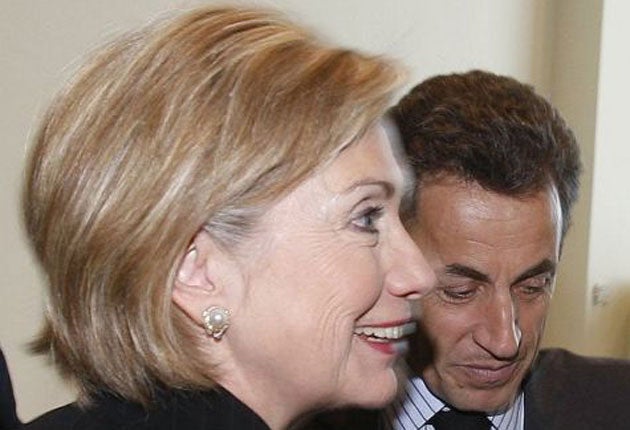Push for peace to avert violence, Gaza donors told

Your support helps us to tell the story
From reproductive rights to climate change to Big Tech, The Independent is on the ground when the story is developing. Whether it's investigating the financials of Elon Musk's pro-Trump PAC or producing our latest documentary, 'The A Word', which shines a light on the American women fighting for reproductive rights, we know how important it is to parse out the facts from the messaging.
At such a critical moment in US history, we need reporters on the ground. Your donation allows us to keep sending journalists to speak to both sides of the story.
The Independent is trusted by Americans across the entire political spectrum. And unlike many other quality news outlets, we choose not to lock Americans out of our reporting and analysis with paywalls. We believe quality journalism should be available to everyone, paid for by those who can afford it.
Your support makes all the difference.A new drive to revive the Middle East peace process is needed because violence could easily erupt again in Gaza, wrecking aid efforts, international donors were told at an aid conference today.
Donors gathered in the Egyptian resort of Sharm El-Sheikh pledged more than $4bn to help the Palestinian economy and rebuild the Gaza Strip after the three-week Israeli offensive that ended in January.
"We need more than pledges of aid," said Foreign Secretary David Miliband said. "The aid needs to get in, it needs to be well spent, then it needs to be sustained. Otherwise the saga of reconstruction and destruction will go on and on."
"The status quo is of benefit to all the extremism. It is time for us to speed up the agenda," French President Nicolas Sarkozy told the conference.
"We are confronted with a serious dilemma," Norwegian Foreign Minister Jonas Gahr Stoere told the final news conference. "Will we once again reconstruct something we built a few years ago and now has been hammered and flattened?"
"Many donors, despite pledges, will wish to see political progress before they commit to infrastructure reconstruction," he said. Norway and Egypt presided jointly over the talks.
The United Nations and aid agencies say reconstruction will probably be hampered by the inability to deliver essential material such as cement and steel to the coastal strip because of an Israeli-led blockade. The Jewish state refuses to allow in material that militants could use to build rockets.
Palestinian Prime Minister Salam Fayyad said that while it was essential to ensure that aid could get in, it should not take centre stage at the expense of finding a sustainable political solution.
"World leaders should not be engaging with Israel in endless discussions about getting banknotes into Gaza or macaroni to feed the people, or paper to educate its students," he said.
The Palestinians and Israel appear bogged down in internal divisions that cast serious doubt on their ability to revive the peace process soon.
Silvan Shalom, an ally to Israeli Prime Minister-designate Benjamin Netanyahu, said yesterday the Israeli leader would not commit his country to the two-state solution, advocated by world powers since the 1993 Oslo accords.
Palestinian groups, including rivals Fatah and Hamas, have launched a national dialogue aimed at forming a unity government that would oversee legislative and presidential elections.
Tony Blair, peace envoy for the Quartet of Middle East mediators, said the Palestinians also needed to resolve internal divisions in a way that would promote a two-state solution.
Neither Hamas nor Israel were invited to the conference.
The United States and European governments want the Palestinians to set up a government of non-partisan technocrats. That would spare them the problem of deciding how to deal with Hamas, which they call a terrorist group.
The West had shunned a previous national unity government led by Hamas after it had won parliamentary elections in 2006. Many Arabs and Palestinians said Western powers were punishing the Palestinians for their democratic choice.
Arab analysts say the administration of US President Barack Obama has so far offered little more than its predecessors on the Middle East by dealing only with the Palestinian Authority and ignoring Hamas, which rules Gaza.
In her first foray into Arab-Israeli peacemaking, US Secretary of State Hillary Clinton said Obama's administration was committed to pursuing an Arab-Israeli peace.
"We will vigorously pursue a two-state solution to the Israeli-Palestinian conflict," she told the conference.
Join our commenting forum
Join thought-provoking conversations, follow other Independent readers and see their replies
Comments